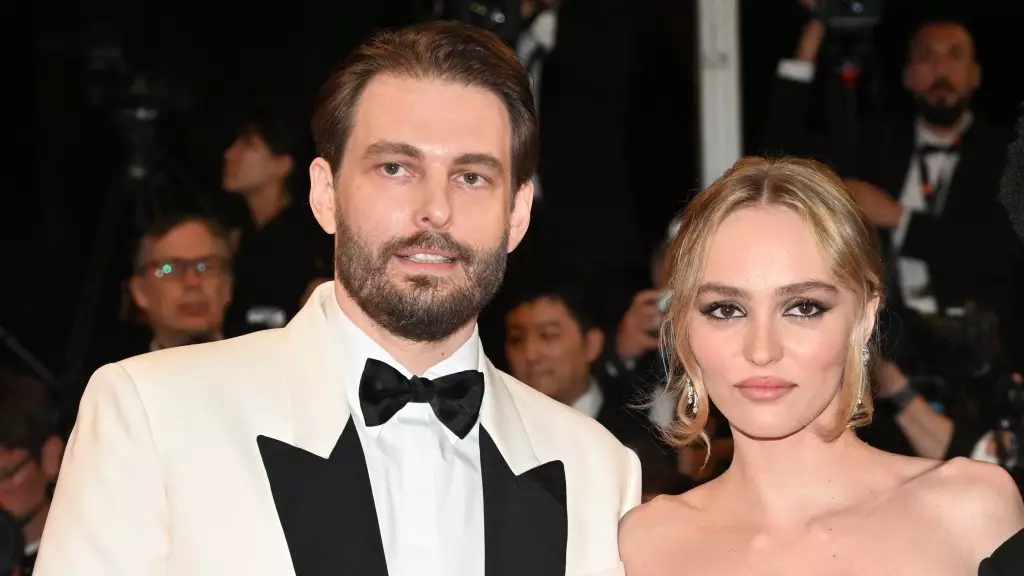The recent HBO drama “The Idol,” created by Sam Levinson, has stirred considerable conversation within the entertainment industry, leaving both critics and fans polarized over its artistic merit and controversial themes. At the center of this storm is actress Lily-Rose Depp, who has emerged as a staunch advocate for Levinson. Her support for the creator, despite the backlash he has faced, raises questions about artistic expression, friendship, and the nature of criticism in the modern media landscape.
Lily-Rose Depp’s unwavering praise for Sam Levinson underscores a deeper conversation about the relationship between artists and their work. On the “Happy Sad Confused” podcast, she articulated her perspective, emphasizing that Levinson was fully aware that his project would incite controversy. “He’s interested in that kind of work,” she noted, hinting at the provocative themes that often characterize Levinson’s creations. This comment serves as a strong defense of Levinson’s choices as a filmmaker and highlights the premeditated nature of the content in “The Idol.”
Depp has expressed frustration over the negative commentary surrounding Levinson, labeling the accusations against him as being far removed from her own experiences working alongside him. This begs the question: Is criticism aimed at the creator sometimes at odds with the actual work, thereby failing to recognize the nuance involved in artistic endeavors? Depp believes that such critiques can overshadow the often personal journeys that these creators embark upon.
In her portrayal of Jocelyn, a pop star navigating the complexities of fame and personal crisis, Depp uses her character’s narrative arc to reflect her own transformative journey during filming. She articulated the profound impact the project had on her development as an artist and individual. “I learned so much; I was pushed so far out of my comfort zone,” she reflects, suggesting that the challenges faced during production were ultimately enriching. It’s an insightful take that challenges the notion of purely commercial success. Can personal growth and artistic expression outweigh critical acclaim?
Moreover, Depp acknowledges the provocative nature of “The Idol,” describing it as a deliberate attempt to “push society’s buttons.” This admission not only frames her performance in a new light but also indicates a broader ambition within the creative community to engage with difficult topics, risking public disapproval in the process. Timing and societal context often dictate how art is received, highlighting the fluid nature of viewer perception in a rapidly changing cultural landscape.
The tumultuous release of “The Idol” and its hasty cancelation after a single season raises questions about the pressures from both audiences and networks to conform to more universally acceptable content. Originally expanded into a limited series, the final exit of director Amy Seimetz and extensive reshoots led to a drastically altered vision that ultimately faltered in the ratings. Depp’s reflections, however, posit that the value of the series stems from the experience and conversation it sparked rather than its traditional success metrics.
Critics dismissed the series, often overlooking the potential points of dialogue it opened. The cancellation of “The Idol” following the emblematic negative sentiment surrounding it serves as a cautionary tale. It exemplifies how hard-hitting narratives can be eclipsed by backlash, leading to the swift downfall of creative projects.
In both Depp’s spirited advocacy of Sam Levinson and her candid reflection on her role in “The Idol,” we find a heartfelt acknowledgment of the inherent risks that come with creative freedom. While the series may have faced significant criticism, the journey it provided to those involved—especially Depp—is invaluable. It challenges us as consumers to appreciate the complexities behind artistic creation and the relationships that influence it. Ultimately, this episode in entertainment history may serve as a reminder that the road to innovation and expression is often fraught with obstacles, but that doesn’t detract from the beauty and significance of the ride.

